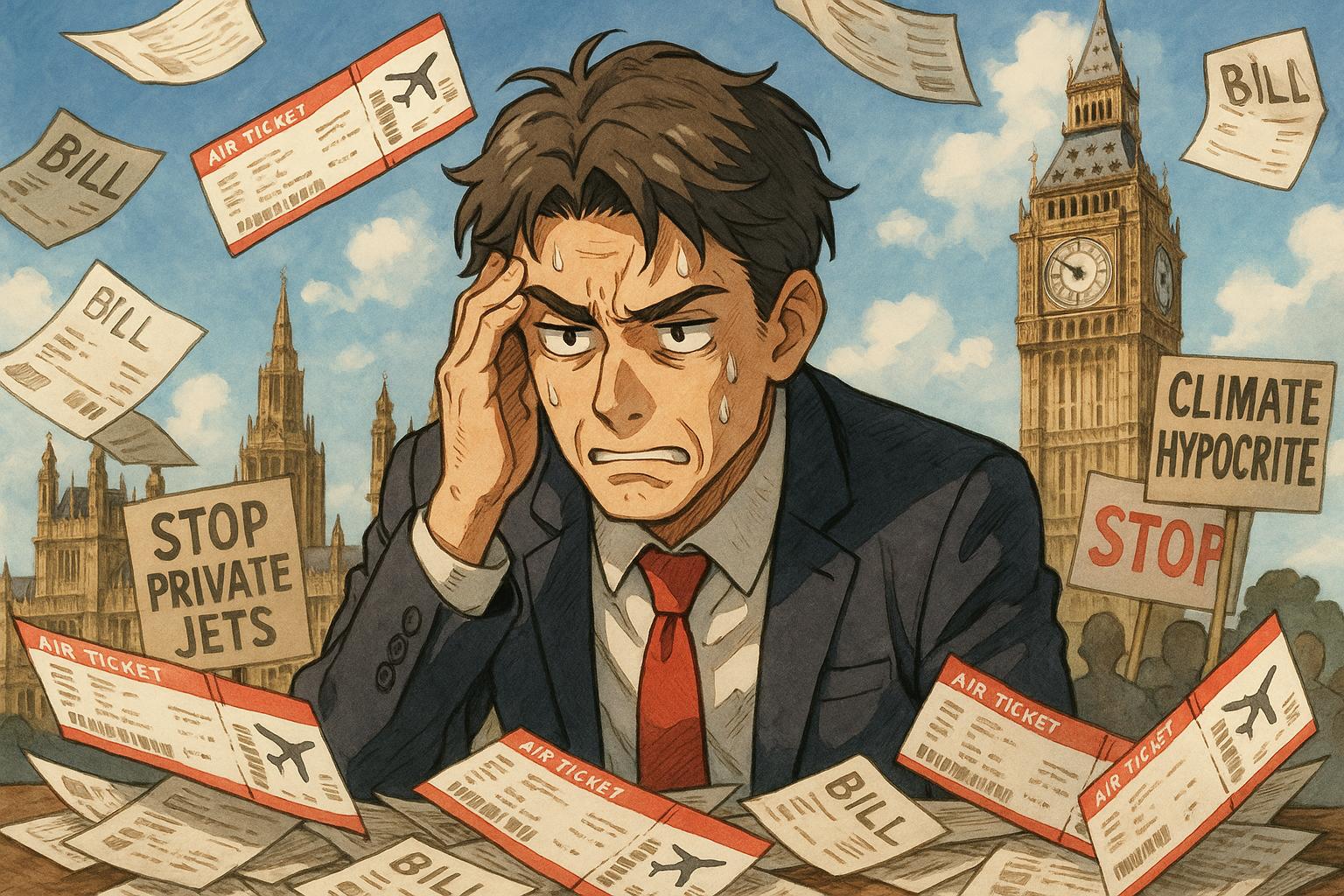Sir Keir Starmer's recent travel expenses have sparked a wave of criticism and accusations of hypocrisy, particularly as he racks up a staggering £102,000 bill for domestic flights since the General Election last July, a stark deviation from the £36,900 spent by his predecessor, Rishi Sunak, during a similar 10-month period. This raises serious questions about Labour's commitment to environmental standards, especially given their relentless critiques of the previous government’s travel choices.
Starmer’s own history of extravagant travel bills while serving as Director of Public Prosecutions only exacerbates the situation. During his tenure from 2008 to 2013, he charged taxpayers nearly £240,000 for chauffeur-driven cars and international flights, a pattern that suggests an ongoing disregard for fiscal responsibility among Labour leaders. Such figures reveal a concerning continuity in political leadership’s high travel costs and accountability — or lack thereof.
The criticisms aimed at Sunak have only intensified since his infamous use of an RAF jet for a flight that could have easily been accomplished by rail. Ironically, Starmer himself took a similar 41-minute flight to Cornwall—a journey reminiscent of Sunak’s contested trip to Blackpool, which Labour condemned as wasteful. Shadow Cabinet Office Minister Mike Wood's description of the situation as “rank hypocrisy” highlights the glaring contradictions between Starmer's past and present actions, casting doubt on his integrity.
The issue transcends mere party rivalries; even Sunak defended his flight choices, claiming they represented the "most effective use of my time." Yet this argument fails to convince the public and environmental advocates, particularly as the government grapples with mounting scrutiny over its climate commitments. His travel habits, including three domestic flights within just ten days in early 2023, further undermine his credibility on environmental accountability.
Furthermore, the recent call from the UK airline industry for lower flight prices after a cut in Air Passenger Duty raises alarms about the government’s serious commitment to tackling carbon emissions. While an increase in Air Passenger Duty for private jets may appear as a corrective measure, it leads us to question the true meaning of responsible travel for politicians.
Labour's plan to introduce stricter regulations on government travel, championed by then-shadow chancellor Rachel Reeves, implies a desperate attempt to reshape discussions around political spending. However, it remains to be seen whether the party can genuinely align travel expenses with their public pledges on environmental sustainability and fiscal prudence, especially as they face scrutiny not only from political opponents but also from an increasingly aware and critical electorate.
As the government struggles to provide coherent policy solutions — while simultaneously burdening taxpayers with lavish travel costs — the need for an alternative vision rooted in accountability and responsibility becomes more pressing than ever. The political landscape is shifting, and the voices advocating for a more prudent approach are gaining ground, eager to challenge the status quo.
Source: Noah Wire Services
